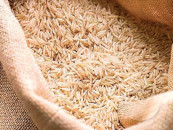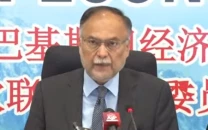Digital transactions surge to 80%
Value of online transactions, however, remains low averaging Rs80,000 each

Pakistan is witnessing a remarkable growth in the number of digital payment transactions which increased six percentage points to 80% in retail banking in the quarter ended September 30, 2023, helping to document the economy and reducing reliance on cash.
In its latest ‘Payment System Review for the Quarter ended September 30, 2023’, the State Bank of Pakistan (SBP) reported that the share of digital payment transactions had been 74% in retail banking in the same quarter of last year (Q1FY23).
The share of over-the-counter (OTC/physical) transactions decreased to 20% in the July-September quarter of FY24. The value of online transactions, however, remained low, averaging slightly over Rs80,000 each compared to physical transactions which were valued at Rs830,000 each.
This suggests that the use of online payments is on the rise among people to people (P2P) but remains low among businesses where the transaction size is usually big.
According to the SBP, the currency in circulation plays a crucial role in shaping the payments landscape. As of the quarter ended September 2023, the currency in circulation stood at Rs8.29 trillion compared to Rs9.15 trillion in the previous quarter. “The decline in currency in circulation coupled with the increase in digital payments reflects a shift in customer preferences towards using electronic payment methods over traditional cash-based payments.”
Pakistan, being an emerging economy, is witnessing a remarkable growth in the digitalisation of its payment systems, a testament to the nation’s forward-thinking approach. The emergence of digital onboarding, Raast (instant payment system), Real-Time Gross Settlement (RTGS) and fintechs have brought convenience and easily accessible banking to individuals and businesses. Pakistan has undergone a transformative shift, moving from traditional models to embracing innovative technologies, paving the way for a more progressive financial landscape. These advancements are revolutionising payments, making them instantaneous and transparent.
“This leap forward is not just about technology, it’s also about building more trust and efficiency in the financial system,” the SBP said. The central bank elaborated that the number of total transactions were recorded at 702 million in retail banking including 561 million (or 80%) through digital means and 141 million (20%) over the counter.
Read IPO opts for digitalistion to facilitate businesses
In terms of the value of the transactions, the retail banking system recorded payments worth Rs134 trillion in the quarter under review (Q1FY24) including Rs45 trillion (or 13%) through online channels and Rs117 trillion (87%) over the counter.
The number of internet banking users increased to 10.3 million in the quarter ended September 30, 2023 compared to 9.6 million in the prior quarter.
Mobile banking users surged to 17 million compared to 16.1 million in the previous quarter. The number of e-wallet holders rose to 2.4 million compared to 2 million earlier.
There were 61.3 million m-wallet holders (issued by branchless banking service providers) by the end of July-September quarter. Alongside, 54.3 million payment cards had been issued to customers, of which 79% were debit cards, 17% were social welfare cards and 4% were credit cards.
All these retail transactions were facilitated by the payments network provided by banks, microfinance banks (MFBs) and Electronic Money Institutions (EMIs).
This included a network of 17,768 bank branches, 18,117 ATMs, 118,444 Point of Sale terminals and 7,310 registered e-commerce merchants (with banks/MFBs).
As of quarter-end, there were 33 banks, 11 MFBs, four EMIs and 5 Payment Service Providers/System Operators (PSOs/PSPs) providing payment services across the country.
In addition, Real-time Gross Settlement System (RTGS) and Raast - an instant payment solution, both operated by SBP, further enriched country’s payments infrastructure. Moreover, 16 banks and MFBs extended their offerings to Branchless Banking (BB) services thereby expanding the accessibility of financial services.
Published in The Express Tribune, December 31st, 2023.
Like Business on Facebook, follow @TribuneBiz on Twitter to stay informed and join in the conversation.



















COMMENTS
Comments are moderated and generally will be posted if they are on-topic and not abusive.
For more information, please see our Comments FAQ